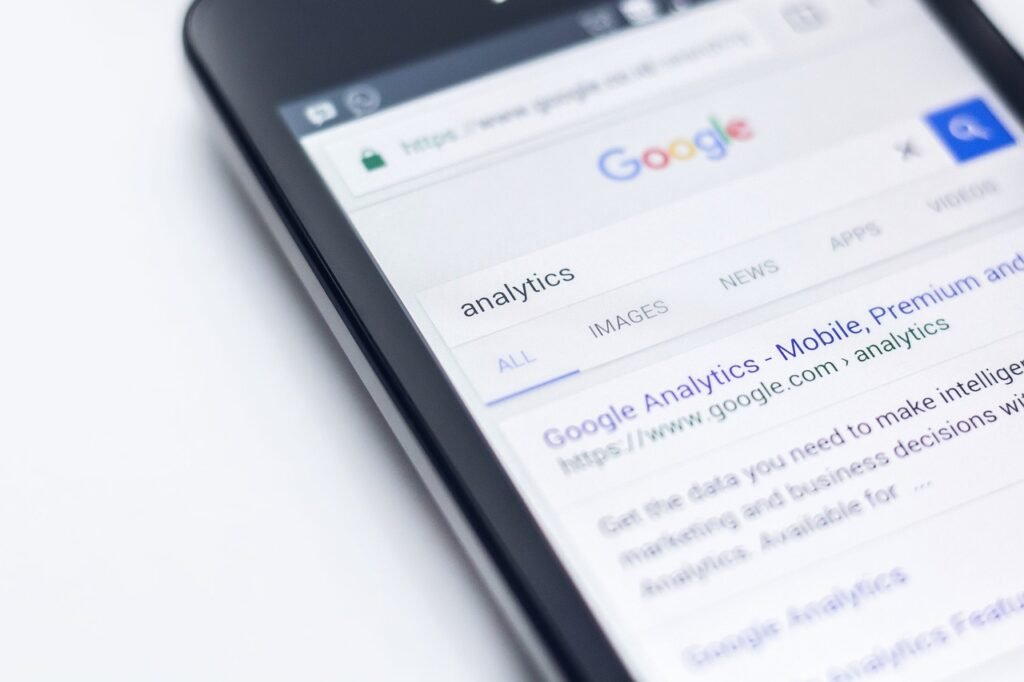In a landscape where influencer marketing is no longer just a trend but a necessity, the art of retargeting has emerged as a crucial tactic. It’s not just about reaching a broad audience; it’s about re-engaging those who’ve shown a spark of interest but haven’t yet been fully captivated. This comprehensive guide delves into how retargeting can transform potential influencer relationships into meaningful collaborations, ultimately enhancing your influencer marketing strategy.
Understanding Retargeting in Influencer Marketing
What is Retargeting?
At its core, retargeting is about re-establishing contact with influencers who have previously engaged with your brand in some way. This could be through a one-time collaboration, a social media interaction, or even an incomplete negotiation process. Retargeting aims to reignite that initial interest, transforming it into a solid, ongoing partnership.
The Crucial Role of Retargeting in Building Influencer Relationships
The true power of retargeting lies in its ability to keep your brand at the forefront of an influencer’s mind. In the fast-paced digital world, attention is fleeting. Retargeting serves as a reminder of your brand’s value and the mutual benefits of a partnership. It’s not merely about persuasion; it’s about reminding influencers of a connection that already exists and has the potential to grow.
Strategic Planning for Retargeting Campaigns
Selecting the Ideal Influencers for Retargeting
The efficacy of a retargeting campaign begins with choosing the right influencers. It’s essential to analyze past interactions. Look at engagement levels, content reach, and alignment with your brand’s values and target audience. This analysis should guide you in selecting influencers who are not only popular but also genuinely resonate with your brand ethos.
Crafting a Personalized Retargeting Approach
Personalization is the linchpin of successful retargeting. Each influencer is unique, with distinct preferences, audiences, and styles. Customizing your retargeting approach to suit these individual nuances can significantly enhance the effectiveness of your efforts. Whether it’s through tailored communication, personalized content proposals, or bespoke collaboration ideas, showing that you understand and value their unique brand will set you apart.
Implementing Retargeting Tactics for Maximum Impact
Leveraging Data to Inform Your Strategy
Data should be the guidepost of your retargeting efforts. Dive into the analytics of previous interactions with influencers. Which types of content did they engage with most? How did their audience respond? Use these insights to build a strategy that speaks directly to the influencer’s strengths and audience preferences.
Multi-Channel Engagement
Expand your retargeting reach across various channels. If an influencer primarily engages on Instagram, consider reaching out there, but don’t neglect the potential of emails or direct messages on other platforms. The key is to be where the influencers are, in a non-intrusive yet noticeable manner.
Navigating Challenges in Retargeting
Overcoming Influencer Hesitancy
It’s not uncommon to encounter hesitancy or non-responsiveness in your retargeting efforts. When this happens, it’s crucial to address potential concerns directly, be it related to creative freedom, compensation, or the nature of the collaboration. Transparency and flexibility can turn hesitancy into enthusiasm.
Ensuring Brand Cohesiveness
Throughout your retargeting campaign, maintaining a consistent brand voice and ethos is vital. This consistency not only strengthens brand recognition but also fosters trust and reliability – qualities influencers and their audiences greatly value.
Measuring and Adapting Your Retargeting Campaigns
Tracking Key Performance Indicators (KPIs)
Effective measurement is key to understanding the success of your retargeting campaigns. Monitor KPIs such as engagement rates, conversion rates, and the quality of content produced. These metrics offer valuable insights into the effectiveness of your strategy and areas for improvement.
The Cycle of Learning and Refining
With each retargeting campaign, there’s an opportunity to learn and adapt. Use the feedback and results from each campaign to fine-tune your approach, continually striving for more personalized, impactful engagements.
Leveraging Social Media Algorithms
Understanding Platform-Specific Dynamics
Social media algorithms play a pivotal role in determining the reach and engagement of influencer content. By understanding these dynamics, marketers can craft content that’s more likely to be favored by these algorithms, increasing visibility and engagement. Each platform, whether it’s Instagram, Facebook, TikTok, or Twitter, has its unique algorithm which influencers and marketers must adeptly navigate.
Timing and Frequency of Posts
Timing and frequency of posts are crucial for maximizing engagement and reach. Analyzing when the target audience is most active can help in scheduling posts to ensure higher visibility. Additionally, consistent yet non-spammy posting can keep the audience engaged and make the influencer’s content a regular part of their social media experience.
Integration with Email Marketing
Enhancing Personalization through Data
By integrating retargeting data with email marketing strategies, brands can send highly personalized and targeted emails to the audience who have already shown interest in their products through influencer promotions. This approach can lead to higher conversion rates as the audience receives content tailored to their preferences and behaviors.
Creating Cohesive Campaign Messages
Maintaining a cohesive message across influencer marketing and email campaigns reinforces brand messaging and drives higher engagement. It’s about creating a seamless experience for consumers, from influencer content to email inboxes.
Collaboration with Micro-Influencers
Building Community Trust
Micro-influencers, often seen as more relatable and trustworthy, can play a significant role in a retargeting strategy. Collaborating with them can lend authenticity and foster trust within niche communities. Their recommendations can act as powerful endorsements, persuading audiences who might have shown initial interest but did not convert.
Cost-Effective Strategies
Working with micro-influencers is generally more cost-effective compared to partnerships with celebrities or mega-influencers. This makes it easier for brands to allocate resources towards retargeting campaigns and other marketing activities.
Utilizing User-Generated Content (UGC)
Boosting Authenticity and Reach
Encouraging and leveraging UGC in retargeting campaigns can amplify authenticity and reach. When potential customers see real people using and endorsing a product, it adds a layer of trust and relatability that purely brand-created content might not achieve.
Enhancing Retargeting Campaigns
Incorporating UGC in retargeting ads can also increase the chances of reconverting the audience who are already familiar with the brand through influencer promotions but need that extra nudge to make a purchase.
Advanced Analytics for Retargeting Optimization
Data-Driven Decision Making
Utilizing advanced analytics tools to understand customer journeys and interactions can help in fine-tuning retargeting campaigns. By identifying patterns and trends, marketers can make informed decisions to optimize their retargeting strategies.
A/B Testing for Improved ROI
A/B testing different elements of retargeting campaigns, such as ad copy, images, and call-to-action buttons, can significantly improve ROI. Understanding what resonates best with the audience allows for more customized and effective marketing efforts.

Related: Check out our free SEO suite

Combining Influencer Marketing with SEO Strategies
Leveraging Influencer Content for SEO
The content created by influencers can significantly boost SEO efforts. When influencers mention a brand or product on their websites, blogs, or social media, it can lead to improved search engine rankings. This is due to fresh content, natural keyword integration, and potentially valuable backlinks.
Influencers Driving Organic Traffic
Influencers can drive substantial organic traffic to a brand’s website. A strategic mention, a blog post, or a social media update that links back to the brand’s site can result in a surge of traffic. This not only improves SEO rankings but also provides a broader audience for retargeting campaigns.
Strategic Use of Hashtags
Boosting Visibility in Social Searches
Hashtags are a crucial part of amplifying visibility on social media. By using targeted hashtags in influencer marketing content, brands can reach audiences beyond their current followers or those who haven’t engaged with them before. This tactic can be particularly effective in attracting a new audience, which can later be retargeted.
Tracking Hashtag Performance
Monitoring the performance of used hashtags can help refine influencer marketing strategies. Understanding which hashtags are bringing in the most engagement and reach informs future campaigns and assists in identifying new retargeting audiences.
Cross-Platform Marketing
Creating a Unified Brand Experience
Brands should aim to create a unified experience across various platforms, whether it’s social media, websites, or email. This approach helps in building a consistent brand image and message, which is crucial for brand recall during retargeting efforts.
Platform-Specific Retargeting Strategies
Different platforms offer various tools and approaches for retargeting. For instance, Facebook’s retargeting tools differ from those on LinkedIn or Instagram. Understanding these nuances allows for a more tailored and effective retargeting strategy.
Influencer-Driven Content Series
Building Engagement Over Time
Creating a series of content, as opposed to one-off posts, can help sustain audience engagement over a longer period. This tactic is beneficial for keeping the brand at the top of the audience’s mind, making retargeting efforts more fruitful.
Storytelling for Deeper Connections
Influencer-driven content series that tell a story or document an experience create deeper connections with the audience. This emotional engagement can lead to higher conversion rates when paired with retargeting strategies.
Ethical Considerations and Transparency
Maintaining Authenticity and Trust
In any influencer marketing and retargeting campaign, maintaining a level of authenticity and transparency is vital. This approach builds trust with the audience and avoids the potential pitfalls of appearing manipulative or insincere.
Respecting Privacy and Data Regulations
Compliance with data privacy laws and regulations, like GDPR and CCPA, is essential in retargeting campaigns. Respecting user privacy and being transparent about data usage can enhance brand reputation and trust.
Advanced Analytics and Influencer Marketing
Utilizing Data for Tailored Strategies
In today’s data-driven marketing world, leveraging advanced analytics is critical. Understanding audience behaviors, preferences, and engagement patterns allows brands to customize their messaging and influencer collaborations more effectively. By analyzing data, brands can identify which influencers are generating the most ROI and fine-tune their retargeting campaigns to those audiences most likely to convert.
Predictive Analytics in Influencer Selection
Predictive analytics can play a pivotal role in selecting the right influencers. By forecasting future trends and audience responses, brands can proactively plan campaigns that resonate with their target audience. This foresight ensures that the retargeting pool is filled with highly engaged users, increasing the likelihood of successful conversions.
Enhancing Brand-Influencer Alignment
Shared Values and Authentic Connection
The synergy between a brand’s values and an influencer’s persona is crucial. Audiences today are adept at discerning authentic partnerships from forced ones. Brands should collaborate with influencers who genuinely resonate with their products or services, as this authenticity translates into more effective retargeting, where the audience already feels a connection with the brand narrative.
Long-term Partnerships for Consistent Messaging
Establishing long-term relationships with influencers can lead to more consistent and impactful messaging. When an influencer becomes a familiar face associated with a brand, their endorsements can feel more genuine and persuasive, especially in retargeting campaigns where familiarity breeds trust and reliability.
Integration of Influencer Content in Email Marketing
Personalization and Increased Open Rates
Integrating influencer content into email marketing can heighten personalization, leading to increased open rates and engagement. Featuring influencer testimonials, stories, or user-generated content can make email campaigns more relatable and engaging, effectively capturing the audience’s interest for subsequent retargeting efforts.
Leveraging Influencer Reputation
Utilizing an influencer’s reputation and credibility can add substantial value to email marketing campaigns. When recipients see a familiar and trusted influencer, it can pique interest, deepen engagement, and set the stage for a more receptive audience in retargeting campaigns.
The Role of AI in Enhancing Influencer Marketing Strategies
Intelligent Influencer Matching
AI can significantly streamline the process of finding the right influencer for a brand. By analyzing vast amounts of data, including engagement rates, audience demographics, and content style, AI tools can suggest the most suitable influencers for specific campaigns, optimizing both initial outreach and subsequent retargeting efforts.
Automated Content Analysis
AI can also be utilized for automated analysis of influencer content. This technology can identify trends, sentiments, and even the performance of specific content types, guiding brands in crafting their retargeting messages and selecting the most impactful content for different segments of their audience.
Micro-Influencers and Niche Markets
Tapping into Highly Engaged Audiences
Micro-influencers, although they may have smaller followings, often boast higher engagement rates within their niche communities. Collaborating with these influencers can be highly effective, especially when targeting niche markets or specialized segments. Their recommendations can be particularly powerful in retargeting, as their word is often taken as highly credible within their community.
Cost-Effectiveness and Specific Reach
Working with micro-influencers can also be more cost-effective, allowing brands to distribute their marketing budget across various niches and communities. This approach not only diversifies the retargeting pool but also ensures a more focused reach, targeting audiences that are more likely to be interested in specific products or services.
Final Thoughts
Retargeting in influencer marketing isn’t just about re-capturing lost traffic. It’s about creating an engaging, seamless narrative that accompanies the customer on their journey, nurtures their connection with the brand, and ultimately guides them towards making a well-informed purchase decision. By focusing on strategic, data-driven, and audience-respecting practices, retargeting can transform potential interest into genuine business growth.
As the digital landscape continues to expand, so do the opportunities and challenges within influencer marketing. Staying ahead means continuously learning, adapting, and most importantly, listening to what the audience needs and wants. The fusion of technology, creativity, and genuine influencer relationships offers a compelling path forward for brands looking to make a lasting impact in the crowded digital marketplace.
READ NEXT:
- Using Social Platforms to Amplify Biotech Research
- The Role of Loyalty Programs in Boosting Influencer Collaborations
- The Power of Video Content in Influencer Marketing: Engaging Viewers and Building Authenticity
- 10X Your Digital Marketing Now! Skyrocket Your Leads in 30 Days
- Branding in the Age of AI and Automation: Adapting to the Future of Consumer Interactions





















